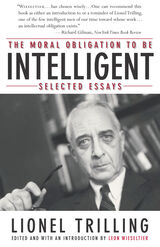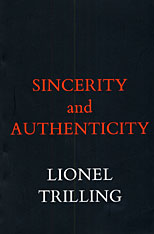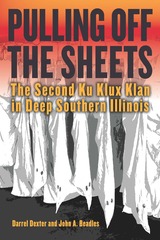
This collection of essays, which originally appeared as a book in 1962, is virtually the complete works of an editor of Commentary magazine who died, at age 37, in 1955. Long before the rise of Cultural Studies as an academic pursuit, in the pages of the best literary magazines of the day, Robert Warshow wrote analyses of the folklore of modern life that were as sensitive and penetrating as the writings of James Agee, George Orwell, and Walter Benjamin. Some of these essays--notably "The Westerner," "The Gangster as Tragic Hero," and the pieces on the New Yorker, Mad Magazine, Arthur Miller's The Crucible, and the Rosenberg letters--are classics, once frequently anthologized but now hard to find.
Along with a new preface by Stanley Cavell, The Immediate Experience includes several essays not previously published in the book--on Kafka and Hemingway--as well as Warshow's side of an exchange with Irving Howe.

Bringing together the thoughts of one of American literature’s sharpest cultural critics, this compendium will open the eyes of a whole new audience to the work of Lionel Trilling. Trilling was a strenuous thinker who was proud to think “too much.” As an intellectual he did not spare his own kind, and though he did not consider himself a rationalist, he was grounded in the world.
This collection features 32 of Trilling’s essays on a range of topics, from Jane Austen to George Orwell and from the Kinsey Report to Lolita. Also included are Trilling’s seminal essays “Art and Neurosis” and “Manners, Morals, and the Novel.” Many of the pieces made their initial appearances in periodicals such as The Partisan Review and Commentary; most were later reprinted in essay collections. This new gathering of his writings demonstrates again Trilling’s patient, thorough style. Considering “the problems of life”—in art, literature, culture, and intellectual life—was, to him, a vital occupation, even if he did not expect to get anything as simple or encouraging as “answers.” The intellectual journey was the true goal.
No matter the subject, Trilling’s arguments come together easily, as if constructing complicated defenses and attacks were singularly simple for his well-honed mind. The more he wrote on a subject and the more intricate his reasoning, the more clear that subject became; his elaboration is all function and no filler. Wrestling with Trilling’s challenging work still yields rewards today, his ideas speaking to issues that transcend decades and even centuries.

“Now and then,” writes Lionel Trilling, “it is possible to observe the moral life in process of revising itself.” In this new book he is concerned with such a mutation: the process by which the arduous enterprise of sincerity, of being true to one’s self, came to occupy a place of supreme importance in the moral life—and the further shift which finds that place now usurped by the darker and still more strenuous modern ideal of authenticity. Instances range over the whole of Western literature and thought, from Shakespeare to Hegel to Sartre, from Robespierre to R. D. Laing, suggesting the contradictions and ironies to which the ideals of sincerity and authenticity give rise, most especially in contemporary life.
Lucid, and brilliantly framed, its view of cultural history will give Sincerity and Authenticity an important place among the works of this distinguished critic.
READERS
Browse our collection.
PUBLISHERS
See BiblioVault's publisher services.
STUDENT SERVICES
Files for college accessibility offices.
UChicago Accessibility Resources
home | accessibility | search | about | contact us
BiblioVault ® 2001 - 2024
The University of Chicago Press









